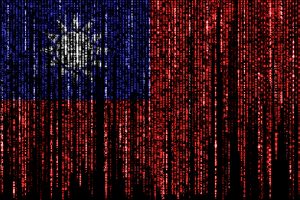As the global artificial intelligence (AI) revolution unfolds, Taiwan finds itself playing a crucial role in shaping the future of this transformative technology, particularly its dominance in the world’s AI chip market. This prominence was showcased at the recent Computex 2024 expo in Taipei, where industry giants such as Nvidia, AMD, Intel, and Qualcomm all came to the island to unveil their latest AI solutions.
Coverage by CNN and The Guardian reported that Nvidia CEO Jensen Huang referred to Taiwan as “the home of our treasured partners” and the inception point for all Nvidia’s initiatives.
Indeed, Taiwan has been active in reaching out to AI chipmakers, including through 2023 amendments to the Statute for Industrial Innovation. The reform allows chip manufacturers to claim a 25 percent tax deduction on research and development for advanced chips, along with a 5 percent deduction for advanced manufacturing equipment purchases.
However, despite its substantial contributions to the global AI ecosystem, Taiwan often struggles to accurately represent itself in global assessments by international organizations such as the United Nations.
The irony is stark: Despite a lack of global data on Taiwan’s AI performance, the island’s semiconductor industry, led by national champion TSMC, is the backbone of global AI infrastructure. The Economist recently reported that the island produces over 90 percent of the most advanced semiconductors for the world’s most cutting-edge AI applications and research.
Taiwan’s contributions to the global AI industry extend beyond integrated circuit (IC) production. The country has also pivoted to producing complete AI hardware solutions. As of 2024, according to the Ministry of Economic Affairs (MOEA), Taiwanese manufacturers supply over 90 percent of AI servers worldwide, with every major American brand relying on Taiwanese sources for their AI server needs.
Largely due to its unique “non-state” status, Taiwan is often neglected in global databases provided by the United Nations. This absence spans several critical areas. The U.N. Trade and Development (UNCTAD) omits Taiwan from its assessments of data protection and privacy legislation. The UNESCO Institute for Statistics (UIS) overlooks Taiwan when calculating research and development expenditure relative to GDP. Similarly, the U.N. e-Government Survey excludes Taiwan from its online government services evaluations.
These data gaps across multiple U.N. sources are consequential for evaluating Taiwan’s AI development potential. Taiwan is particularly vulnerable to index reports drawing on U.N. databases. That was illustrated in the Government AI Readiness Index 2023 released by Oxford Insights, which noted that more than 40 percent of the data on Taiwan is imputed (meaning it had to be substituted from other sources or estimates).
This data deficiency significantly impacts Taiwan’s standing in such indices. For instance, the Oxford Insights report highlights a major shortfall in Taiwan’s AI readiness regarding data protection and privacy legislation. In this specific subcategory, China is ranked first, while Taiwan is positioned near the bottom, ranked 140th.
But a closer examination of Taiwan’s domestic regulatory landscape indicates otherwise. Taiwan has a comprehensive Personal Data Protection Act (PDPA), which was first enacted in 1995 and has undergone several amendments. Although there remains potential for further refinement, the PDPA clearly delineates requirements for the collection, processing, and use of personal data by both government agencies and nongovernment organizations.
Why, then, did Taiwan score so low in this subcategory? Because of a lack of relevant data. This underlines the implications of Taiwan’s omission from U.N. databases and the resulting data gaps.
The systematic omission of Taiwan’s data from global indices and databases is a form of data injustice that distorts the representation of both its challenges and achievements. This injustice has far-reaching consequences, as it hinders Taiwan’s ability to participate in global discourse and decision-making on crucial issues.
Another case in point is Taiwan’s exclusion from the World Health Organization (WHO) during the COVID-19 pandemic. Despite its exemplary management of the crisis, Taiwan was unable to share its experiences and expertise with the global community through the WHO platform. This public health isolation not only deprived other nations of valuable insights but also restricted Taiwan’s access to timely information and resources, potentially jeopardizing the well-being of its more than 23 million citizens.
Similarly, in the context of AI development, the lack of accurate and comprehensive data on Taiwan’s capabilities and contributions can lead to a skewed understanding of the global AI landscape. As a pivotal force in the AI supply chain, the exclusion of Taiwan from global assessments can result in missed opportunities for collaboration, knowledge-sharing, and inclusive decision-making on the future of AI.

































